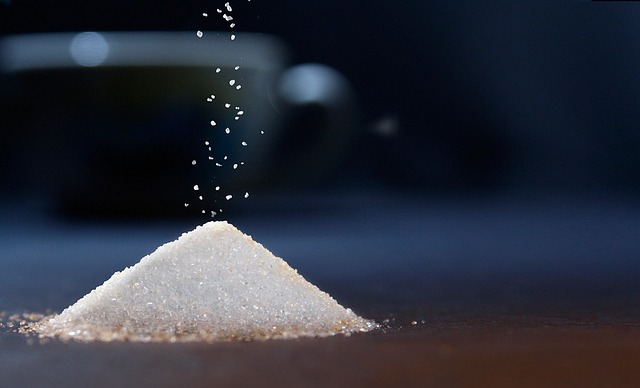In recent years, there has been a growing concern about the amount of free sugar that people consume on a daily basis. Free sugar refers to the sugar that is added to food and drinks, as well as the sugar that is naturally present in honey, syrups, and fruit juice. Excessive consumption of free sugar can lead to various health problems, including obesity, type 2 diabetes, and tooth decay.
Read more about the Dangers of Free Sugar Consumption: Breaking Down the Latest Research.
In this article, we will provide recommendations on how much free sugar to consume.
Sugar Recommendations
According to the World Health Organization (WHO), adults should consume no more than 25 grams (or six teaspoons) of free sugar per day. This recommendation includes all sources of free sugar, including sugar that is added to food and drinks, as well as the sugar that is naturally present in honey, syrups, and fruit juice. This recommendation is based on scientific evidence that excessive consumption of free sugar can lead to various health problems.
Children’s free sugar intake should be lower than adults. The American Heart Association (AHA) recommends that children aged 2 to 18 years should consume no more than 25 grams (or six teaspoons) of free sugar per day. Children under the age of 2 should not consume any free sugar, according to the AHA.
It is important to note that these recommendations are based on an average daily calorie intake of 2000 calories for adults and may vary depending on individual needs. Athletes, for example, may require more calories and therefore can consume slightly more free sugar.
It is also important to note that not all sugars are equal. Natural sugars found in fruits and vegetables, for example, are not considered free sugar as they are accompanied by fiber and other nutrients. It is recommended to consume fruits and vegetables as a source of natural sugars.
Tips to Reduce Free Sugar Consumption
Consuming too much free sugar can have negative impacts on health. Excessive sugar consumption can lead to weight gain, which increases the risk of obesity, heart disease, and type 2 diabetes. It can also lead to tooth decay and cavities.
Here are some tips for you to reduce your free sugar consumption:
- Choose water or unsweetened beverages instead of sugary drinks like soda, energy drinks, and fruit juices.
- Avoid adding sugar to your food or drinks, and opt for natural sweeteners like honey or maple syrup in moderation.
- Choose fresh, whole fruits instead of fruit juice, which can contain a lot of added sugar.
- Check the labels of packaged foods and choose products with little or no added sugar. Ingredients are listed by weight, with the largest amount first, so if sugar is listed at the top, then the product may contain a high amount of sugar.
- Avoid or limit the consumption of processed foods like cookies, candy, and other sweets, which often contain high amounts of added sugar.
- Choose low-sugar or no-sugar-added versions of foods like yogurt, cereal, and granola bars.
- Use spices and herbs to add flavor to your meals instead of sugar, which can enhance the taste without adding extra calories.
- Limit your intake of high-sugar condiments like ketchup, barbecue sauce, and salad dressing.
- Eat a balanced diet that includes plenty of whole foods like fruits, vegetables, whole grains, and lean protein, which can help reduce cravings for sugary foods and drinks.
In conclusion, the recommended daily intake of free sugar for adults and children is no more than 25 grams (or six teaspoons) per day. It is important to note that these recommendations are based on an average daily calorie intake of 2000 calories for adults and may vary depending on individual needs. To reduce the consumption of free sugar, it is recommended to read the labels of food and drinks carefully and limit the consumption of sugary drinks. By following these recommendations, individuals can reduce their risk of various health problems associated with excessive sugar consumption.
References Available.


Leave a Reply